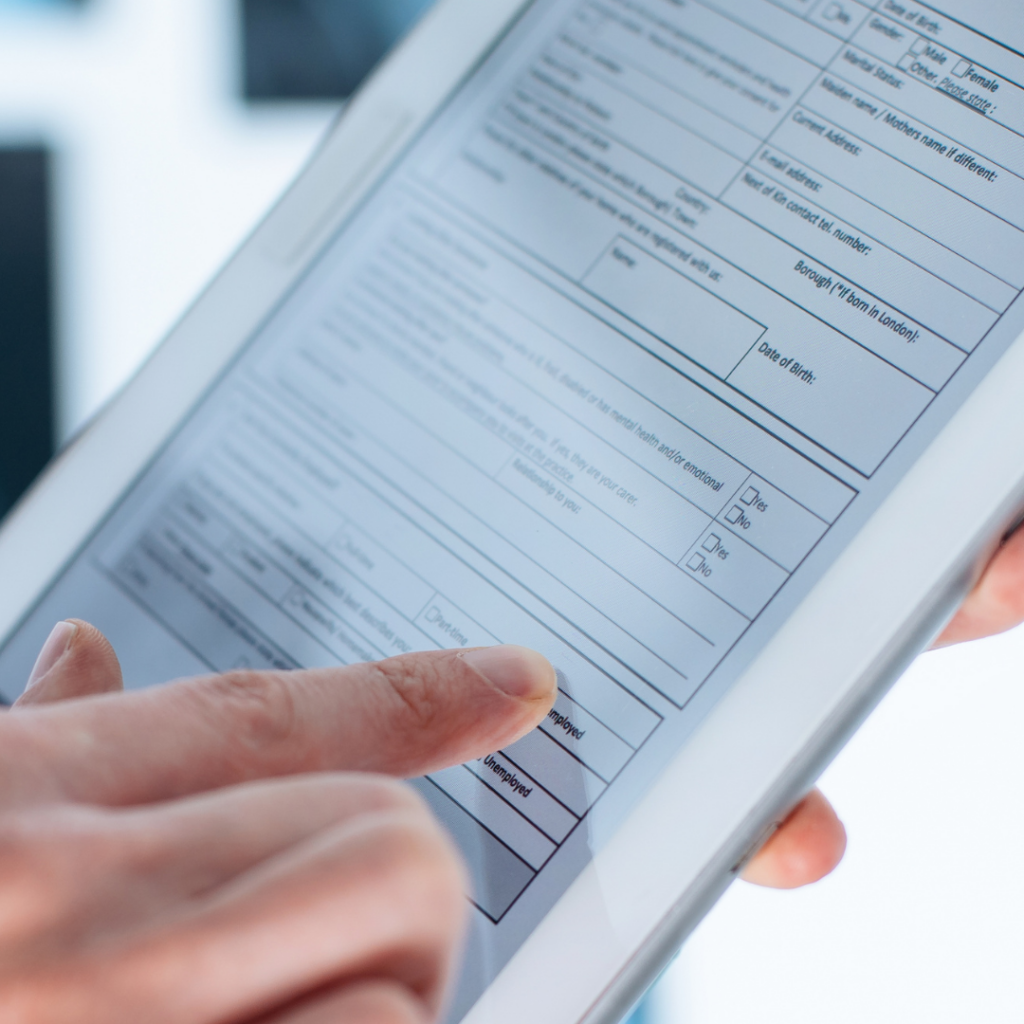Digital Poverty: notes from Charity Digital’s Digital Inclusion Summit.
Karen enjoyed attending Charity Digital’s Digital Inclusion Summit on 20 June 2024. Well, perhaps ‘enjoyed’ isn’t quite the right word – as much as she had a nice time learning about A.I., cyber security, accessibility, and new apps, the dominant theme was digital poverty and how there is still a huge digital divide, particularly if you are from a low-income household.
Helen Milner, CEO of the Good Things Foundation was one of the first speakers of the day and spoke of the digital divide in the UK, stating 8.5 million people lack basic digital skills and 2.4 million can’t afford a mobile phone contract.
A staggering 3.7 million families are below the Minimum Digital Living Standard.

The Good Things Foundation are calling on the next government to provide a Minimum Digital Living Standard you can read the Good Thing Foundation’s manifesto here:
Manifesto to Fix The Digital Divide | Policy Asks | Good Things (goodthingsfoundation.org)
“We call on the UK Government and all political parties to act on digital inclusion. Let’s work together to #FixTheDigitalDivide – for good.”
There was an interesting panel discussion on Digital Inclusion and Equality
with:
Simone Currie, Policy Coordinator – British Red Cross
Elizabeth Anderson , Chief Executive Officer – Digital Poverty Alliance
Rachel Coldicutt, Executive Director – Promising Trouble
Jonathan Chevallier – Charity Digital
Naturally, this wasn’t a positive discussion as the panel spoke about the high level of digital inequality.
Here are a few key points that Karen took away from the discussion.

Digital should not be seen as a luxury; it really is a necessity now with everything being pushed online.
There has been a dramatic change to health and wellbeing. If you are excluded then you can’t access work, education, health, connect with friends and have the same entertainment.
“Everyone has to have access to these things”
There is dignity in having a device and connectivity. Those that aren’t can’t do the same tasks as what everyone else takes for granted. Children can’t even chat to their friends online or watch the same TV shows. That sounds like it isn’t a necessity, but it does affect their mental health, well-being and helps bonding with their peers.
There was a story about a woman who was given a device and she cried with joy as she could then contact her mother abroad easily who had poor health.
People’s mental health deteriorated during Covid lockdown as they couldn’t access support online which then put pressure on the emergency services.
There has been a rush to a digital world, people now rely on it. It is easy and convenient, they can access information and services 24 hours a day. However, in lockdown we soon discovered that we shouldn’t take these skills for granted, there were still millions of people who had limited or no digital skills.
There are 19 million people in digital poverty.
One in seven adults. One in five children.
There are three factors that need addressing: affordability, skills and infrastructure.
As a result of this digital poverty, research shows that children are doing worse at school and sadly many lives of people over the age of 65 could have been saved if they had the digital skills.
There is increasing problems in accessing digital health.

Many GP surgeries are pushing people to make appointments and order repeat prescriptions online. You also need ID to access the NHS services, which not everyone has, and then to order ID you need to go online. For example, if you are an asylum seeker then you will not have ID. Luckily the service now can now accept ARC cards.
Everything is done online which exacerbates poverty. A lot of items you can purchase cheaper online, and you can look for the best deals for things such as utilities contracts and insurance.
There is a push for organisations to provide printed materials alongside information that is published online.
You still can’t reach everyone online.
It is best to talk to people with lived experience.
Organisations need to listen to people in the community and respond to what they need. The people who experience digital exclusion are best to approach for research. Try to provide a platform for engagement that isn’t online.
How do you reach people that aren’t online? Find the people most excluded first – they are usually in areas with high levels of deprivation. Measure it. Talk to people. Ask questions like; what devices do they have at home? What skills do they have?

The panel encouraged staff from organisations to pay attention to everyday digital experiences. What tech is a struggle? Make a note. This could even be things like the new checkouts at supermarkets.
One of the main points was to say how even if people do have access to digital, a lot of the new technology isn’t fair and just. For example, face recognition software doesn’t work properly on younger people or people with darker skin.
There are also thousands of people being scammed in the online world which is deeply upsetting for them, and even the tech-savvy are victims.
The panel was wary about pushing new technology in organisations. They said it was best to make sure your staff, volunteers and the community can all be on board, are able to access this technology and benefit from it. For example, please don’t storm ahead using A.I. if it puts people at risk. Be careful how you collect data. Don’t do something at haste and then have to roll back quickly.
Only one in five people know what digital poverty means.
The panel called on people to raise awareness and said that everyone needs to come together to help with this issue – every organisation.
We aren’t going back, digital is here to stay, so this is an extremely important issue.
The panel agreed that it affects every part of our life and should be of prime importance for the next government taking control on July 5th 2024.
Keep the conversation going!
Digital access should be basic utility and a right.